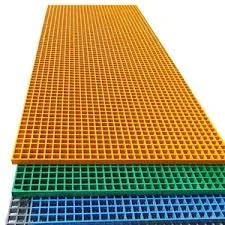
-
 Afrikaans
Afrikaans -
 Albanian
Albanian -
 Amharic
Amharic -
 Arabic
Arabic -
 Armenian
Armenian -
 Azerbaijani
Azerbaijani -
 Basque
Basque -
 Belarusian
Belarusian -
 Bengali
Bengali -
 Bosnian
Bosnian -
 Bulgarian
Bulgarian -
 Catalan
Catalan -
 Cebuano
Cebuano -
 China
China -
 China (Taiwan)
China (Taiwan) -
 Corsican
Corsican -
 Croatian
Croatian -
 Czech
Czech -
 Danish
Danish -
 Dutch
Dutch -
 English
English -
 Esperanto
Esperanto -
 Estonian
Estonian -
 Finnish
Finnish -
 French
French -
 Frisian
Frisian -
 Galician
Galician -
 Georgian
Georgian -
 German
German -
 Greek
Greek -
 Gujarati
Gujarati -
 Haitian Creole
Haitian Creole -
 hausa
hausa -
 hawaiian
hawaiian -
 Hebrew
Hebrew -
 Hindi
Hindi -
 Miao
Miao -
 Hungarian
Hungarian -
 Icelandic
Icelandic -
 igbo
igbo -
 Indonesian
Indonesian -
 irish
irish -
 Italian
Italian -
 Japanese
Japanese -
 Javanese
Javanese -
 Kannada
Kannada -
 kazakh
kazakh -
 Khmer
Khmer -
 Rwandese
Rwandese -
 Korean
Korean -
 Kurdish
Kurdish -
 Kyrgyz
Kyrgyz -
 Lao
Lao -
 Latin
Latin -
 Latvian
Latvian -
 Lithuanian
Lithuanian -
 Luxembourgish
Luxembourgish -
 Macedonian
Macedonian -
 Malgashi
Malgashi -
 Malay
Malay -
 Malayalam
Malayalam -
 Maltese
Maltese -
 Maori
Maori -
 Marathi
Marathi -
 Mongolian
Mongolian -
 Myanmar
Myanmar -
 Nepali
Nepali -
 Norwegian
Norwegian -
 Norwegian
Norwegian -
 Occitan
Occitan -
 Pashto
Pashto -
 Persian
Persian -
 Polish
Polish -
 Portuguese
Portuguese -
 Punjabi
Punjabi -
 Romanian
Romanian -
 Russian
Russian -
 Samoan
Samoan -
 Scottish Gaelic
Scottish Gaelic -
 Serbian
Serbian -
 Sesotho
Sesotho -
 Shona
Shona -
 Sindhi
Sindhi -
 Sinhala
Sinhala -
 Slovak
Slovak -
 Slovenian
Slovenian -
 Somali
Somali -
 Spanish
Spanish -
 Sundanese
Sundanese -
 Swahili
Swahili -
 Swedish
Swedish -
 Tagalog
Tagalog -
 Tajik
Tajik -
 Tamil
Tamil -
 Tatar
Tatar -
 Telugu
Telugu -
 Thai
Thai -
 Turkish
Turkish -
 Turkmen
Turkmen -
 Ukrainian
Ukrainian -
 Urdu
Urdu -
 Uighur
Uighur -
 Uzbek
Uzbek -
 Vietnamese
Vietnamese -
 Welsh
Welsh -
 Bantu
Bantu -
 Yiddish
Yiddish -
 Yoruba
Yoruba -
 Zulu
Zulu
Durable Solutions with Reinforced Plastic Pipes for Enhanced Infrastructure Performance
Reinforced Plastic Pipe The Future of Piping Solutions
When it comes to modern infrastructure, the choice of materials plays a pivotal role in ensuring durability, efficiency, and cost-effectiveness. Among various materials used in piping systems, reinforced plastic pipes have gained considerable attention due to their superior properties, versatility, and growing applications in various industries. This article delves into the features, benefits, and applications of reinforced plastic pipes, highlighting their importance in contemporary engineering and construction.
What are Reinforced Plastic Pipes?
Reinforced plastic pipes (RPP) are composite materials made by combining a plastic matrix—usually polyvinyl chloride (PVC), polyethylene (PE), or polypropylene (PP)—with reinforcing materials such as fiberglass or carbon fibers. This combination enhances the mechanical properties of the plastic, resulting in pipes that exhibit improved strength, rigidity, and resistance to environmental factors. The reinforcing materials also provide additional benefits, such as increased temperature resistance and reduced weight, making RPP an excellent alternative to traditional materials like metal or concrete.
Key Benefits of Reinforced Plastic Pipes
1. Corrosion Resistance One of the standout features of reinforced plastic pipes is their resistance to corrosion. Unlike metal pipes that are susceptible to rust and degradation from various chemicals, RPPs maintain structural integrity even when exposed to harsh conditions. This makes them ideal for applications in chemical processing plants, wastewater treatment facilities, and other corrosive environments.
2. Lightweight and Easy to Handle Compared to traditional piping materials, reinforced plastic pipes are significantly lighter. This characteristic simplifies transportation and installation, reducing labor costs and construction time. The ease of handling also minimizes the risk of injury during installation.
3. Durability and Longevity With their enhanced strength and resistance to wear, reinforced plastic pipes can last for decades without needing significant maintenance or replacement. This durability translates to lower life-cycle costs, making RPPs a wise investment for infrastructure projects.
4. Temperature and Pressure Resistance The reinforcement offered by fiberglass or carbon fibers allows these pipes to withstand higher pressure and temperature variations than conventional plastic pipes. This capability makes RPPs suitable for hot water applications and high-pressure systems.
reinforced plastic pipe

5. Environmental Impact Reinforced plastic pipes are often manufactured using recyclable materials, contributing to sustainability efforts in various industries. Their longevity reduces the frequency of replacements, further minimizing environmental impact over time.
Applications of Reinforced Plastic Pipes
Given their numerous advantages, reinforced plastic pipes have found applications across a broad spectrum of industries
- Water and Wastewater Management RPPs are commonly used in municipal water supply systems and sewage treatment plants due to their corrosion resistance and durability. - Industrial Applications Many manufacturing processes involve corrosive substances, making RPPs ideal for transporting chemicals safely. Their lightweight nature further contributes to their utility in industrial settings.
- Oil and Gas In the exploration and transportation of oil and gas, reinforced plastic pipes are increasingly preferred due to their strength and resistance to chemical erosion.
- Construction Reinforced plastic pipes are used in plumbing, drainage, and irrigation systems, providing a robust solution for building projects.
- Electrical Conduits The non-conductive nature of reinforced plastic makes it a suitable option for electrical conduits, ensuring safety and reliability.
Conclusion
As industries continue to seek innovative solutions that meet the demands of modern infrastructure, reinforced plastic pipes emerge as a superior alternative to conventional materials. With their numerous advantages—including corrosion resistance, lightweight design, and increased longevity—RPPs are transforming the landscape of piping installations across various sectors. As technology advances and the need for sustainable building practices grows, it is clear that reinforced plastic pipes will play a significant role in shaping the future of piping solutions.









